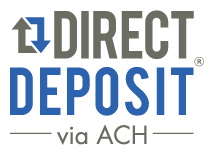In March, the National Grain and Feed Association (NGFA) wrote the Surface Transportation Board (STB) to highlight “significant” service disruptions reported by their members.
Corn refiners also identified problems with ‘first mile’ and ‘last mile’ rail service – situations where product is not picked up to be shipped OR product has arrived in a nearby rail yard, but not delivered to its destination.
Roots of rail transportation problems are several. Beginning in 2003, Class I railroads (with the exception of BNSF) began adopting Precision Schedule Railroading (PSR) a operational method focused on maximum asset utilization and return on investment.
Critics (Shippers and Unions) insist that PSR puts investor interests ahead of customer service by slashing expenses for equipment and headcount. They say PSR leads to the loss of redundant capacity and service disruptions caused by severe weather and seasonal surges in shipping.
COVID also impacted the entire shipping industry. Supply chains were disrupted, shipments were dramatically decreased, and railroads parked assets and 12,500 employees were furloughed. When the economy began to improve, furloughed workers were not available making it difficult for railroads to re-deploy power and equipment.
Problems were further exacerbated by failed contract negotiations between Class I railroads and Unions. Salary increases aside, main sticking points focused on quality of life issues. This all came to a head when, with the intervention of the Biden Administration, an early morning tentative agreement averted a national rail strike.
Despite the apparent contract resolution, concerns persist. Customers wait for product to be delivered timely, processors wait for supplies to arrive and stranded cars to be returned, and shippers, in general, hope that we are not experiencing a ‘new normal’ for rail freight service.







